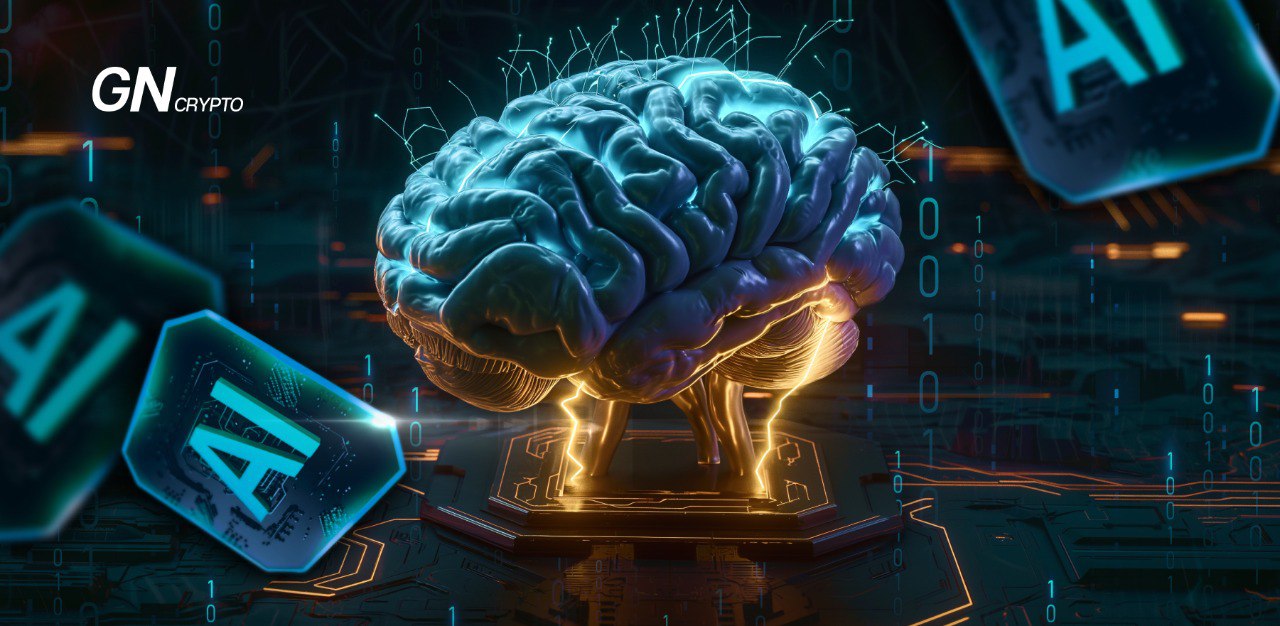Venture Capital AI Investments in the World’s Five Economies

Artificial intelligence is increasingly becoming a transformative force in the global economy, attracting hundreds of billions of dollars annually in related investments. This article traces the flow of venture capital into the AI sector.
On this page
Amidst the global surge in interest towards artificial intelligence, the World Economic Forum (WEF) has released data on the five largest economies in terms of venture investor activity in this technology. According to the global marketing agency Wise Voter, the ranking by GDP for 2023 was as follows: the USA ($23.315 trillion), China ($17.73 trillion), Japan ($4.941 trillion), Germany ($4.26 trillion), and India ($3.176 trillion).
USA: Drones, Healthcare, IT
Predictably, the world's leading economy is also a frontrunner in attracting venture capital to the AI industry. Some estimates suggest that the overall economic impact of AI over the next decade could increase today's GDP by up to 1.5% (or about $3.8 trillion).
This prospect has fueled private capital; over the past five years, venture investments in the AI sector have totaled approximately $290 billion. The leading area for such investments has been autonomous vehicles (AVs), spurred by an updated regulatory framework (e.g., the AV START Act), which has streamlined testing and deployment processes for AI platforms in transportation. As a result, industry giants like Google, Tesla, and Uber have shown keen interest, with investments in this area reaching $50 billion.
AI is also highly sought after in the healthcare sector. The sector has benefited from several regulatory relaxations, boosting investor confidence and interest. For example, the U.S. Food and Drug Administration (FDA) has accelerated the approval processes for AI medical devices, such as systems for early detection of diabetes. Over the past five years, VC investment in medical diagnostics and AI-based remote patient monitoring technologies have reached $48-49 billion, nearly matching the investments in autonomous vehicles.
The USA remains the undisputed leader in cloud technology as well. The Federal Cloud Computing Strategy, aimed at modernizing and securing IT infrastructure, allocates a key role to AI. Artificial intelligence is progressively becoming an essential tool for automating processes.
As cloud technology in the USA undergoes a significant boom, there is a demand for fundamentally new solutions to optimize resources. Over the last five years, “cloud” directions in IT infrastructure have drawn more than $45 billion in VC investments, and the trend is continuing to grow.
China: Robotics and Autonomous Vehicles
The World Economic Forum (WEF) highlights the challenge of distinguishing between state and private investments in China's market. In China, independent investors often partake in government programs partially funded by the state, blurring the lines of true independence.
China solidified its national AI strategy back in 2017. By 2020, it had surged to the forefront of AI research and development, leading the world in AI-related patents.
This rapid advancement sparked significant concern in the United States, prompting the U.S. Congress to establish the National Security Commission on Artificial Intelligence. In its 2021 final report, the Commission explicitly stated that for the first time since World War II, U.S. technological dominance is under threat.
The WEF forecasts that the Chinese AI platform market will exceed $61 billion by 2025. According to the Organisation for Economic Co-operation and Development (OECD), the last five years have seen about $120 billion in venture capital investments poured into China’s AI ecosystem.
The most significant investments have been in autonomous vehicles, approximately $43 billion.
Following closely is the industrial AI robot segment, which received about $25 billion over the same period. By 2022, China dominated the global market for industrial AI robots, commanding 52% of the market share with more than 290,000 units installed annually.
China's early success in AI was fueled by its vast domestic market, but it has rapidly expanded its global influence through international contracts. These contracts have implemented AI solutions in various sectors, including surveillance, smart city platforms, and automated process management.
Japan: Society 5.0
Japan is leveraging artificial intelligence to address its diminishing workforce and to better integrate its elderly population into society, given its status as one of the fastest-aging nations globally.
In 2016, the Japanese government implemented the “Society 5.0” initiative, designed to infuse cutting-edge technologies, including artificial intelligence, into every aspect of daily life. Essentially, it aims to blend cyberspace with the physical world seamlessly.
By 2018, Japan introduced a Regulatory Sandbox system, a special legal framework that allows entities engaged in developing new products and services to experiment without risking legal penalties, facilitated by a flexible legal environment.
Furthermore, in 2021, Japan established a Digital Agency charged with expediting the digital transformation of both public corporations and private enterprises. The reforms are expected to boost Japan’s GDP by an additional $735 billion by 2030.
Today, Japan holds the second position globally in research and development spending and ranks fourth in manufacturing competitiveness.
These initiatives have not only captured domestic attention but have also attracted international capital, leading to several joint ventures in these fields. Over the past five years, the Japanese AI sector has secured approximately $10 billion in venture capital investments.
The AI field in Japan is seeing significant growth, particularly in software, bolstered by innovative Japanese technologies in data storage, computing power, and data processing capabilities.
India: A Marketing Revolution
According to forecasts from Nasscom, India's local IT association, and consulting firm BCG, India's artificial intelligence market—the world's fourth-largest economy—is projected to reach $17 billion by 2027. The growth rate between 2024 and 2027 could be extraordinary, ranging from 25-35% annually.
In the past five years, the AI sector in India attracted about $10 billion in venture capital investments. The structure of these investments is influenced significantly by the widespread Internet penetration in Indian society (by the end of 2023, the number of active Internet users in India had grown to nearly 900 million).
Over five years, $7 billion was invested in Indian marketing, financial, and insurance platforms. AI-based analytics are used to optimize websites more effectively, enhance targeting, predict customer behavior, develop targeted campaigns, and increase the return on investment.
For comparison, about $40 billion was invested in AI-based marketing platforms in the U.S. over five years, and approximately $10 billion in China.
Germany: Chasing the Leaders
In late summer 2023, Germany announced plans to double its funding for AI research, which amounted to 1 billion euros the previous year. The European Commission also earmarked an additional one billion euros for AI research.
Germany is clearly intent on becoming a leader in European AI developments. Moreover, the German market has attracted major U.S. technology companies; for example, Microsoft plans to invest $3.2 billion in German AI infrastructure, and Apple has shown interest in the German AI startup Bitbot.
According to the WEF, Germany attracted approximately $10 billion in venture capital investments into the AI sector over the last five years, mainly in the development of intelligent business process management platforms.
If the largest economy in the Eurozone fully enters the competition with the two global AI centers, the USA and China, it could intensify the competition for a slice of the venture capital “pie” focused on AI.
The content on The Coinomist is for informational purposes only and should not be interpreted as financial advice. While we strive to provide accurate and up-to-date information, we do not guarantee the accuracy, completeness, or reliability of any content. Neither we accept liability for any errors or omissions in the information provided or for any financial losses incurred as a result of relying on this information. Actions based on this content are at your own risk. Always do your own research and consult a professional. See our Terms, Privacy Policy, and Disclaimers for more details.

























